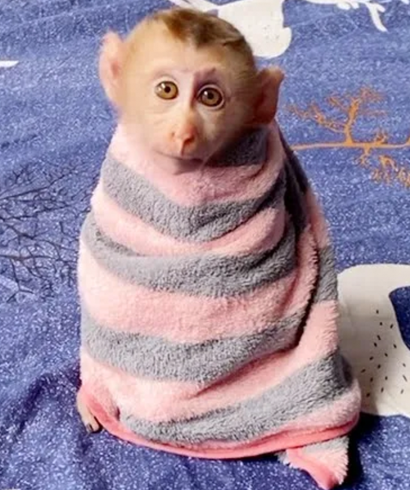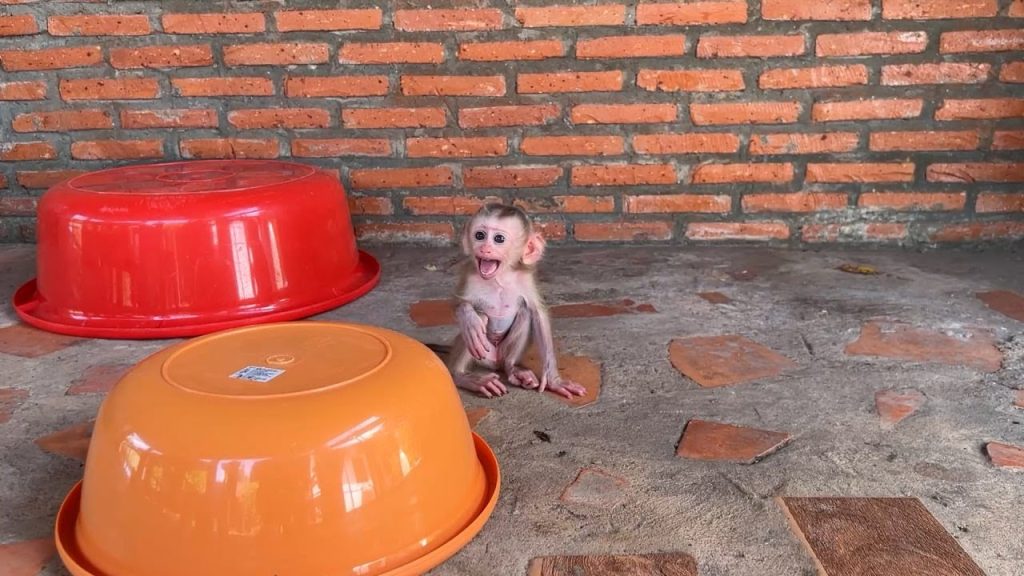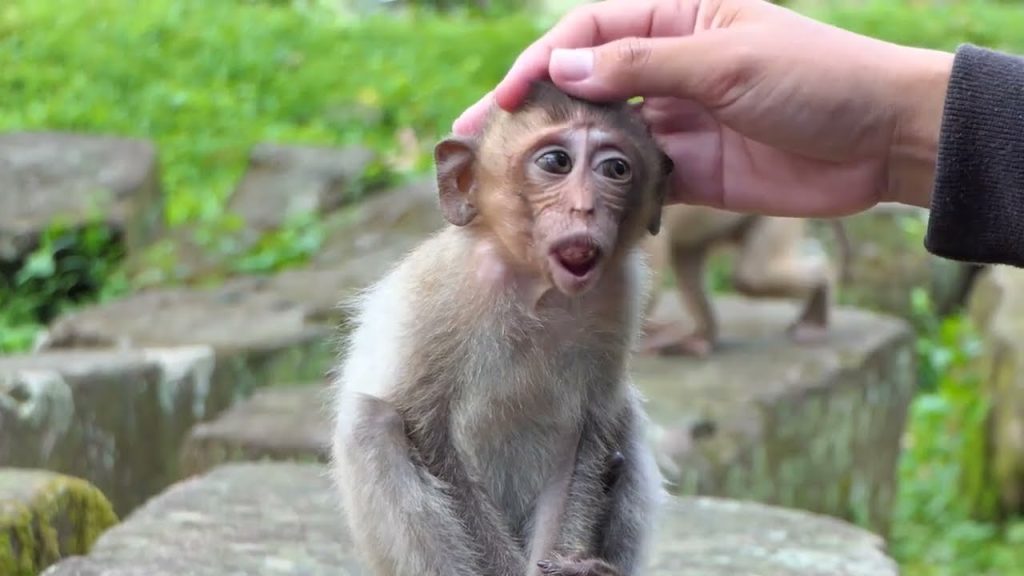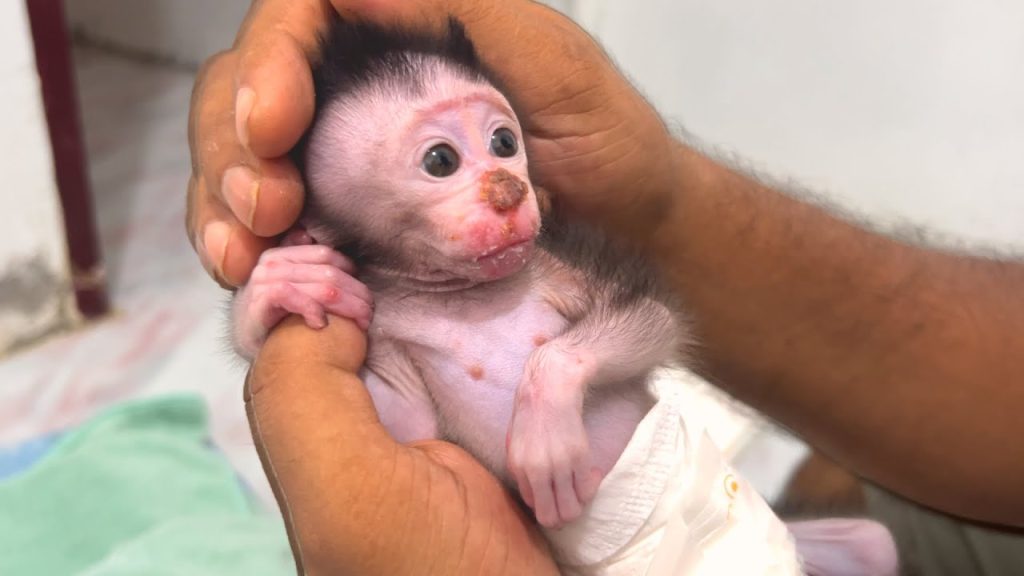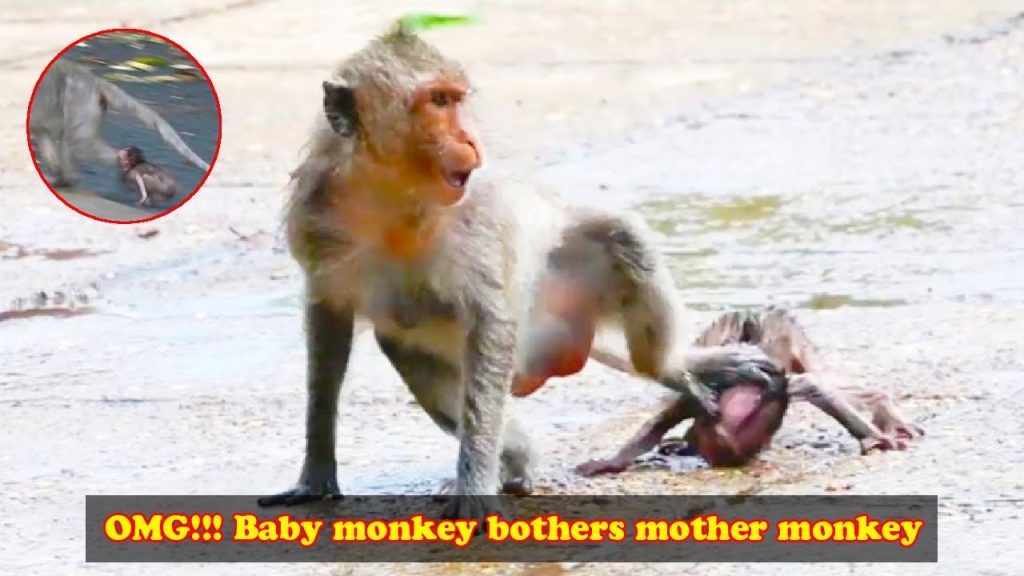
In the quiet shade of the trees, baby monkey Jibi was full of restless energy. He tugged at his mother’s tail, climbed on her back, and squeaked loudly near her ears. His tiny hands pulled at leaves and fur, trying to get her attention. But Mama Muna had been exhausted all morning, barely able to rest while also caring for her newborn twins.
At first, she tried to ignore Jibi’s mischief. She pushed him gently away, then turned her back to rest. But Jibi was determined. He jumped on her head, clinging tightly, giggling in his own monkey way.
Suddenly, Mama Muna snapped.
With a sharp cry, she turned and swatted him off. He tumbled onto the grass with wide eyes, shocked and scared. But Muna wasn’t done — she approached him and hit him again with her hand, a clear warning in her glare. Jibi whimpered, backing away, his playful mood gone in a heartbeat.
Other monkeys nearby paused and watched in silence. It wasn’t unusual in the wild — monkey moms often discipline their young harshly when overwhelmed or when the behavior becomes too much.
Jibi crawled under a bush, hugging his knees, quiet tears rolling down his furry cheeks. He didn’t understand why Mama hurt him. All he had wanted was attention and play.
After some time, Mama Muna calmed down. She walked over, sniffed Jibi’s fur, and gently picked him up. He flinched but didn’t resist. She held him close to her chest, rocking slightly.
Though her reaction was harsh, it came from fatigue and stress, not hate. Wild mothers have little room for patience when survival demands strength.
That night, Jibi stayed close to her, quieter than usual, slowly learning the balance between affection and boundaries in their tough world.
